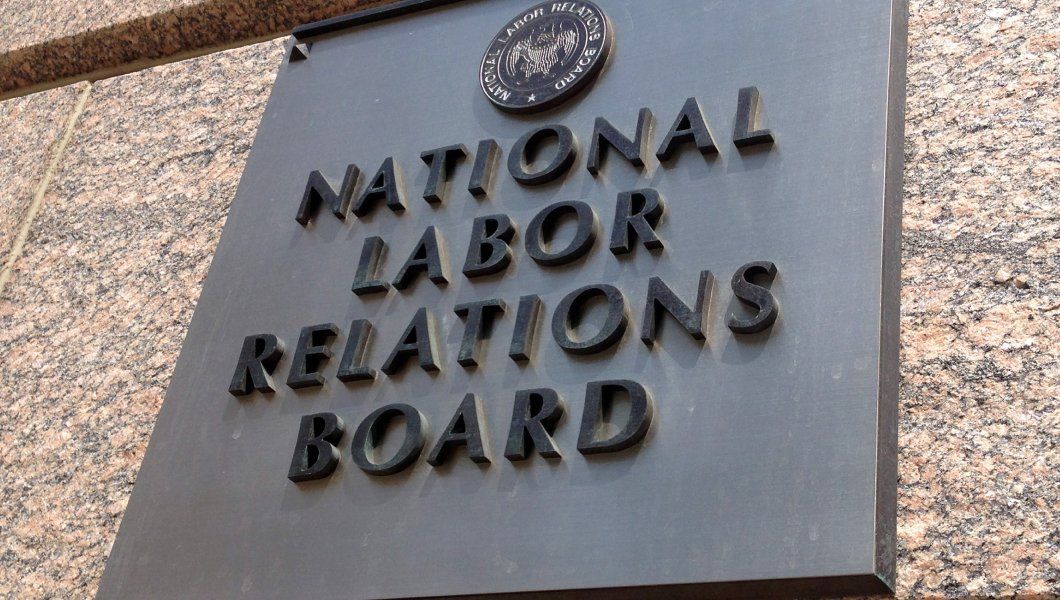Green is the New Black: Why the GGRF Matters to Your Small Business
What if you could significantly reduce your operating costs? Then imagine if you could attract a new wave of environmentally
Explore the dynamic landscape of small business regulations in 2024. Uncover strategic insights on adapting to economic shifts, navigating legal frameworks, and implementing compliance solutions for sustained growth.


Regulations can be quite tricky to navigate. On the one hand they aim to ensure business practices prevent any unethical activities and protect the employees. For business owners, it can be tricky.
It often means dealing with excessive paperwork, spending more money, and worrying about potential fines if they fail to comply with the regulations.
Tom Sullivan, the Vice President of Small Business Policy at the U.S. Chamber of Commerce explains it simply; "If you're running a business adhering to regulations can be more costly, per employee compared to larger corporations."
Looking ahead to 2024 there are new regulations small business owners should keep an eye on.

Okay, buckle up for the FinCEN registration ride in 2024! Small businesses are now on the hook to register with a crew called the Financial Crimes Enforcement Network, thanks to the Corporate Transparency Act from 2021.
This act is all about exposing those sneaky shell companies and putting the squeeze on folks trying to hide their shady money moves, as Treasury Secretary Janet Yellen mentioned in 2022.
Now, the big dogs with more than twenty employees and over $5 million in sales catch a break with exemptions. But hold on to your hats because around thirty-two million small businesses are left without a pass.
The owners and part-owners of these businesses need to disclose information to FinCEN – we are talking personal info, like a snapshot of their ID and where they lay their heads.
Despite legal hurdles, this regulation is gearing up for action in 2024. But wait for it – the deadlines have done a little shuffle. For the businesses already in the game, the new deadline is January 1, 2025, not the original Jan 1, 2024.
Now, if you are planning to kick off a business after Jan 1, you have a bit more breathing room, but not much – just 90 days instead of the initial 30. And here is the kicker: if you do not play by the rules, be ready to cough up serious dough. We are talking penalties soaring up to a whopping $10,000. Ouch!

Guess what? There is a bit of good news in the tax world! So, in November, the IRS hit the brakes on a rule that said businesses had to reveal on any digital transactions over $600. You know, those payments through fancy apps like Venmo, Zelle, or online marketplaces.
This rule was supposed to kick in last year but was pushed back. Fast forward to the 2023 tax year, and guess what? The IRS decided to cut businesses some slack again.
They are giving everyone a pass on reporting that revenue for 2023. But here is the plot twist – they have a plan. For the 2024 tax year, there is a new kid in town: a $5,000 threshold. It is like a warm-up before they fully roll out the original $600 reporting requirement.
Why the change of heart? Well, the IRS Commissioner, Danny Werfel, shared the insight. “They listened to the tax folks and others, and it turns out this move is all about preventing unnecessary confusion.
So, there you have it – a little reprieve from the tax reporting hustle!”

Securing a loan for a business can be quite challenging, much like finding your way through a maze. This is especially true because small businesses often lack the financial history larger banks usually require.
Additionally, women and minority owned businesses face greater difficulties in obtaining loans.
To promote fairness and transparency in the lending process, the Consumer Financial Protection Bureau (CFPB) has made a move this year. They are now requesting banks to disclose information about the demographics and income of applicants for business loans.
This initiative aims to establish a database of what the mortgage industry has been implementing for a considerable period.
You know when it comes to home loans regulators have been gathering information on applicants for years under a law called the Home Mortgage Disclosure Act (HMDA) from the 1970s.
This data helps ensure that banks do not discriminate against borrowers, a practice commonly known as redlining.
But here is the interesting part – advocates for businesses are expressing concerns. They argue these new regulations will complicate the loan process making it more challenging for small businesses to secure the necessary funds.
Karen Kerrigan, who holds a position at the Small Business & Entrepreneurship Council even goes as far as to claim that these rules will overwhelm both small businesses and banks with excessive paperwork.
She believes this could result in legal disputes and privacy risks while potentially forcing small banks out of the industry.
The CFPB hit the pause button on the compliance deadlines due to some ongoing legal tussles, but keep your eyes peeled in 2024 – it is still a hot topic.

All right let us talk about the National Labor Relations Board (NLRB) and their rulebook shake-up in October. They decided to jazz up the joint-employer rule, broadening the scope of who can be tagged as a "joint employer."
In a nutshell, if two companies are both making decisions about employees – think franchisers and franchisees, and it's not just about the fast-food joints – they could both get a ticket for unfair labor practices.
Hold up, though; this rule is strictly about labor relations and covers most private-sector businesses dancing under the National Labor Relations Act umbrella.
Now, here is where the plot thickens. Unions and worker squads are giving the thumbs up, saying this new rule is a win for the labor force, adding a layer of protection.
But the small business cheerleaders have a bone to pick. They argue that this rule puts an unfair load on the shoulders of small businesses.
Originally, this rule was set to hit the scene on December 26, causing a bit of a stir. But, surprise, surprise – thanks to some wrestling matches in Congress and the legal arena, the NLRB hit the snooze button.
They pushed back the grand entrance of the new joint-employer rule, and now it is slated to make its debut on February 26, 2024. Keep your popcorn ready; it's a show worth watching.

Hold onto your baseball cap! The wage and overtime scene is gearing up for a shake-up in 2024! Over twenty states are cranking up the minimum wage, and it's not just pocket change.
Take Nebraska, for example – they are tossing in an extra $1.50, bumping it up to a cool $12 on January 1. Meanwhile, Florida's minimum wage is catching an extra buck, reaching $13 by September 30.
But that is not all, folks! The Department of Labor is tossing another log on the fire. In August, they floated a proposal that could give the overtime green light to around 3.6 million more workers.
The plan? If you are a salaried hotshot in roles like executive, administrative, or professional, you could be in for some overtime moolah – but only if you are raking in less than $1,059 a week or $55,068 a year for the full-timers. That is a step up from the previous threshold of $35,568.
Now, cue the drama – Karen Kerrigan from the SBE Council is predicting some legal fireworks once the final rule struts onto the stage. Why? Well, jacking up the threshold could send shockwaves through many businesses.
The comment section closed shop on November 7, so keep your eyes peeled for the grand reveal from the Labor Department in 2024.
In Kerrigan's words, get ready for a rollercoaster of changes in small businesses – not just in terms of costs but also how they structure things like career growth and compensation models. It is going to be a wild ride!

As we approach 2024, small businesses find themselves on the cusp of significant regulatory changes. From financial transparency requirements to altered labor relations rules, wage adjustments, and more, the landscape is evolving.
While some regulations aim to enhance transparency and fairness, concerns have been raised about potential burdens on small enterprises. It is essential for business owners to stay informed, adapt strategies accordingly, and remain agile in navigating the shifting regulatory terrain.
The coming year promises challenges, but with awareness and initiative-taking measures, small businesses can position themselves to thrive amidst the regulatory transformations.
Sign up for the newsletter and get our latest stories delivered straight to your inbox.